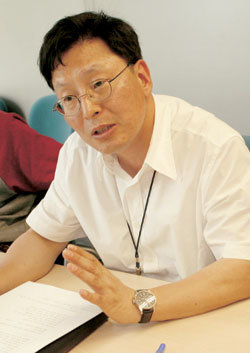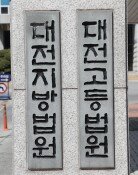Tailor-Made Exposés with Pre-Drawn Conclusions Must Go
Tailor-Made Exposés with Pre-Drawn Conclusions Must Go
Posted August. 31, 2004 22:01,

Producers of current affairs programs must above all be wary of prejudice and self-righteousness. We must guard against falling into the practice of drawing up exposés with pre-drawn conclusions merely to fill out an agenda.
Producer-in-charge Shin Eon-hun of SBSs current affairs show I Want to Know conducted a survey of 111 producers working in the current affairs and documentaries departments of network channels KBS, MBC, and SBS. The results pointed to a sense of impartiality that enables one to see objectively as the cardinal virtue a producer should possess.
Shins paper, Research on the Production Environment of Current Affairs Programs, Based on the Perceptions of Current Affairs Producers on the Three Network Channels, which includes the above findings, will be published in the I Want to Know 500th-episode commemorative handbook due out on September 1. Throughout the study, Shin includes various reflections on the shows production practices from the perspective of a producer-in-charge who has been helming the controversial exposé program for the past three years.
According to the paper, 60 percent of those who participated in the survey responded that impartiality was the most important trait for a current affairs producer. And an overwhelming 84 percent of respondents also singled out impartiality as the most essential virtue for a producer-in-charge.
But the study also shows that maintaining objectivity and impartiality during the actual production process can be extremely difficult. When asked what the biggest problem with current affairs production practices might be, 55 percent of respondents answered, Made-to-fit exposés based on pre-drawn conclusions.
You start off with the intention of bringing somebody to account. But in the process of actually meeting that person and talking to him or her, you sometimes find that the kernel of injustice or iniquity becomes smaller and smaller. But if you acknowledge that, the force of the show diminishes. So the producer starts to pick and choose the material that most approaches the conclusions with which the report started.
Of late, certain current affairs shows tended to lose their sense of neutrality due to an eagerness to empower the present administration, Shin remarked and further emphasized, With not only news reports but also current affairs programming becoming subject to accusations of partiality, the results of this study are well worth pondering.
In the paper, Shin points out that mistakes can be corrected, but self-righteousness can rarely be shaken. If a producer bases oneself on self-righteousness, the pendulum of truth begins to swing drastically and journalism itself becomes threatened.
The current affairs shows on all three network channels have enjoyed longevity for over 500 episodes, so there is virtually no subject or theme that they have not yet covered. In order to overcome the general decline in ratings for current affairs programming, we should reinforce the shows professionalism by adopting such measures as a system of investigative-specialists when assigning producers, he proposed.
In the I Want to Know commemorative handbook, Shin plans to include behind-the-scenes stories on the unaired 1993 Kang Ki-hun Ghostwriting episode, alongside the study on current affairs programming.
Jin-Yeong Lee ecolee@donga.com






![[속보]美 “미국인은 이란 당장 떠나라” 대사관 긴급 공지](https://dimg.donga.com/c/138/175/90/1/wps/NEWS/IMAGE/2026/01/13/133147285.1.jpg)
